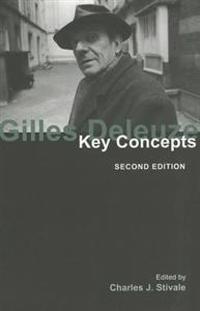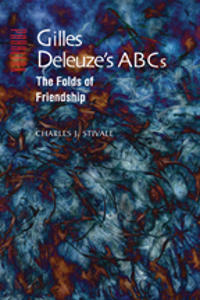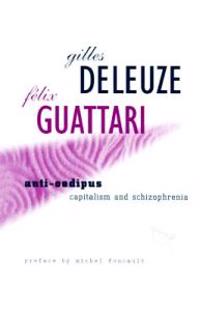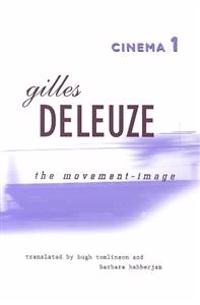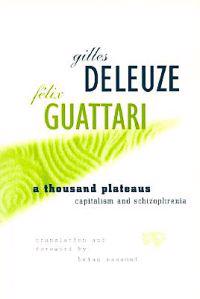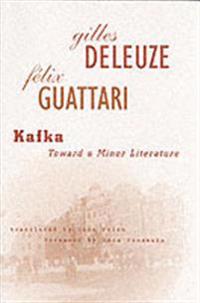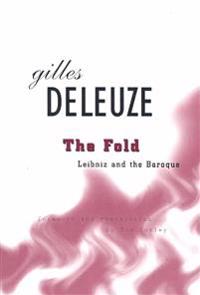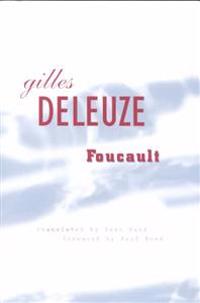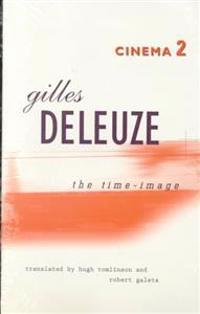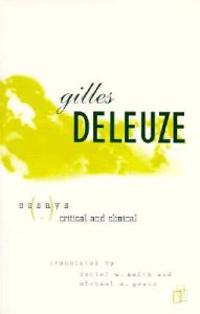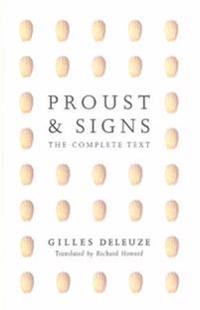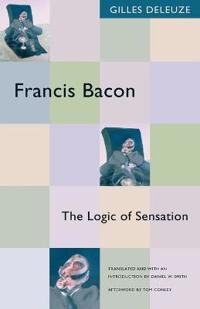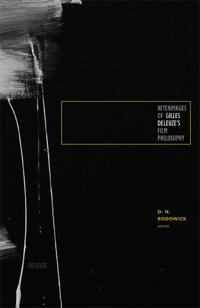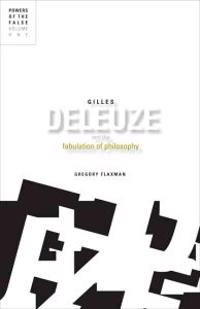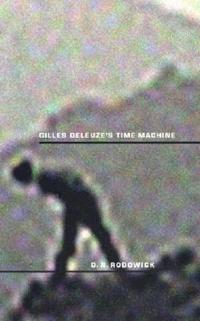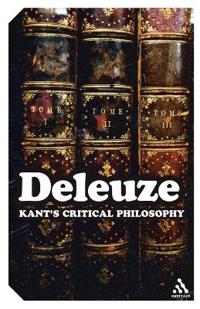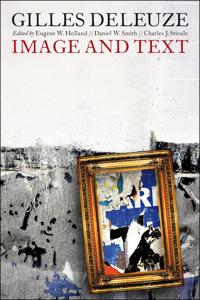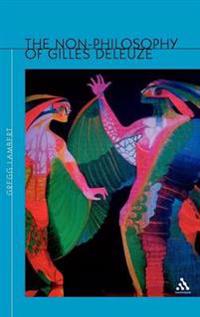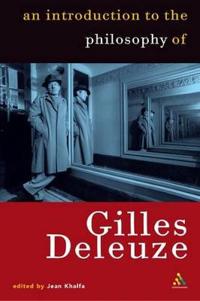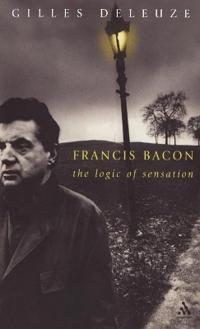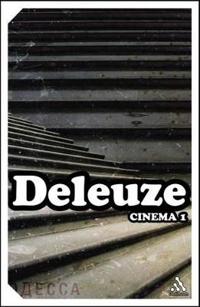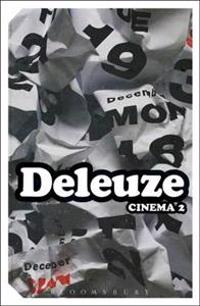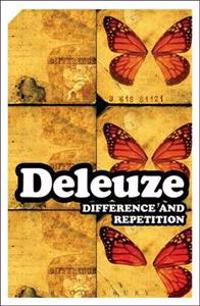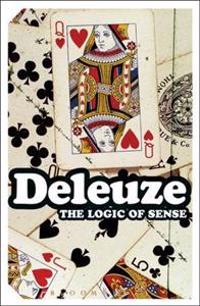Gilles Deleuze: Key Concepts (Häftad)
avCharles J. Stivale
ISBN: 9780773539471 - UTGIVEN: 2011-12Deleuze's concepts - such as assemblage, the fold, difference and repetition, cinema and desire - are key to understanding his philosophical approach: they work to unsettle particular bodies of knowledge, to open them up and link them to other concepts within and outside that body of knowledge. The [...]
Gilles Deleuze's ABCs (Inbunden)
avCharles J. Stivale
ISBN: 9780801887239 - UTGIVEN: 2008-02Friendship, in its nature, purpose, and effects, has been an important concern of philosophy since antiquity. It was of particular significance in the life of Gilles Deleuze, one of the most original and influential philosophers of the late twentieth century. Taking L'Abecedaire de Gilles Deleuze-a[...]
Anti-Oedipus: Capitalism and Schizophrenia (Häftad)
avGilles Deleuze, Felix Guattari
ISBN: 9780816612253 - UTGIVEN: 198312Cinema 1: the Movement-Image (Häftad)
avGilles Deleuze
ISBN: 9780816614004 - UTGIVEN: 198610Discusses the theoretical implications of the cinematographic image based on Henri Bergson's theories[...]
Thousand Plateaus: Capitalism and Schizophrenia (Häftad)
avGilles Deleuze
ISBN: 9780816614028 - UTGIVEN: 198712Suggests an open system of psychological exploration to cut through accepted norms of morality, language, and politics[...]
Foucault (Häftad)
avGilles Deleuze
ISBN: 9780816616756 - UTGIVEN: 198805Examines the philosophical foundations of Foucault's writings and discusses his views on knowledge, punishment, power, and subjectivation[...]
Proust and Signs: The Complete Text (Häftad)
avGilles Deleuze
ISBN: 9780816632589 - UTGIVEN: 200310Gilles Deleuze's Time Machine (Pocket)
avDavid Norman Rodowick, Stanley Eugene (EDT) Fish, Fredric (EDT) Jameson
ISBN: 9780822319702 - UTGIVEN: 1997-08Although Gilles Deleuze is one of France's most celebrated twentieth-century philosophers, his theories of cinema have largely been ignored by American scholars. Film theorist D. N. Rodowick fills this gap by presenting the first comprehensive study, in any language, of Deleuze's work on film and im[...]
Kant's Critical Philosophy (Häftad)
avGilles Deleuze
ISBN: 9780826432063 - UTGIVEN: 200811Gilles Deleuze was one of the most important and influential Continental philosophers of the twentieth century and this book is an essential text for the field of Kant studies. Gilles Deleuze (1925-1995) was Professor of Philosophy at the University of Paris VII. He is a key figure in poststructural[...]
Gilles Deleuze (Häftad)
ISBN: 9780826439239 - UTGIVEN: 200906This is an important collection of essays examining the intersections between Deleuzian philosophy and the arts. "Gilles Deleuze: Image and Text" focuses on the intersection between Deleuzian philosophy and the arts. Deleuze combined exceptionally rigorous insight into important Western philosophers[...]
Non-Philosophy of Gilles Deleuze
ISBN: 9780826459558 - UTGIVEN: 2002-08The Non-Philosophy of Gilles Deleuze takes up Deleuze's most powerful argument on the task of contemporary philosophy in the West. Deleuze argues that it is only through a creative engagement with the forms of non-philosophy notably modern art, literature and cinema that philosophy can hope to attai[...]
Introduction to the Philosophy of Gilles Deleuze
ISBN: 9780826459961 - UTGIVEN: 2003-04Gilles Deleuze has been labelled as the post-x thinker: post-structuralist, post-modern, post-Spinozist, post-Nietzschean, and even post-utopian. An Introduction to the Philosophy of Gilles Deleuze explores such categorizations and places Deleuze and Deleuzian method at the heart of contemporary tho[...]
Francis Bacon: The Logic of Sensation (Inbunden)
avGilles Deleuze
ISBN: 9780826466471 - UTGIVEN: 200306Gilles Deleuze was one of the most influential and revolutionary philosophers of the twentieth century. Francis Bacon: The Logic of Sensation is his long-awaited work on Bacon, widely regarded as one of the most radical painters of the twentieth century.The book presents a deep engagement with Bacon[...]
Cinema 1 (Häftad)
avGilles Deleuze
ISBN: 9780826477057 - UTGIVEN: 200501Gilles Deleuze (1925-1995) was Professor of Philosophy at the University of Paris VIII. He is one of the key figures in poststructuralism, and one of the most influential philosophers of the twentieth century. Cinema I is a revolutionary work in the theory of cinema and begins Deleuze's major reasse[...]
Cinema 2 (Häftad)
avGilles Deleuze
ISBN: 9780826477064 - UTGIVEN: 200501Offers a fascinating analysis of the representation of time in film and the cinematic treatment of memory, thought and speech, and looks at the work of Godard, Hitchcock and Welles.[...]
Difference and Repetition (Häftad)
avGilles Deleuze
ISBN: 9780826477156 - UTGIVEN: 200411Since its publication in 1968, "Difference and Repetition," an exposition of the critique of identity, has come to be considered a contemporary classic in philosophy and one of Deleuze's most important works. The text follows the development of two central concepts, those of pure difference and comp[...]
The Logic of Sense (Häftad)
avGilles Deleuze
ISBN: 9780826477163 - UTGIVEN: 200411Since its first publication, Logic of Sense has become a famous work of philosophical criticism, Working from Stoic philosophy to Lewis Carroll's literary and logical paradoxes and on to psychoanalysis, Deleuze seeks to determine the status of meaning and meaninglessness. Deleuze's exploration takes[...]

